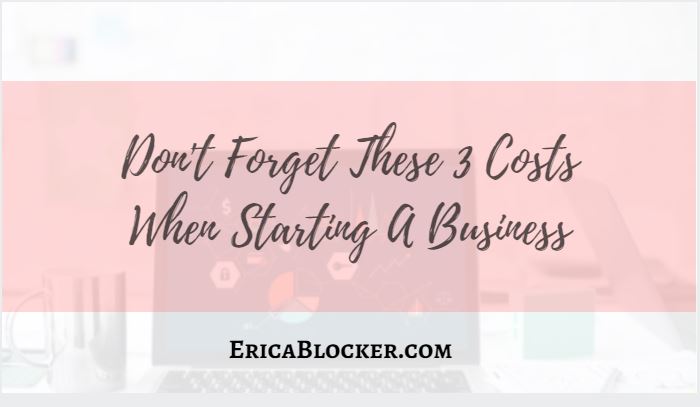
Image Credit: Stock Snap
When you are starting a business, it’s vital to make sure that you have a thorough plan. Ideally, your plan should set out exactly what you are going to do, including the cost of set up, running costs, projected profits and even a marketing strategy. With this plan, you should be able to figure out how to make your business successful as well as see where there may be some problems.
Start-ups fail for a variety of reasons, but often it is due to poor planning and forgetting to include important details. Other times, it is down to being too optimistic about costs and not realizing that some costs may increase over time or could be affected by other factors.
Financial planning is so crucial to starting up any business and maintaining it over a long period of time. However, you can’t expect to make the best decisions for your business without all the right information, and now is the time to get everything in order.
Here are a few costs that you may have forgotten to put into your plan…
Business Tax
You would think it would be high up on the list of things businesses must take into account, but business tax is quite often forgotten in the heat of the moment.
Your business must pay business tax and, as start-up, it is very likely that you will just be paying the basic rate. To factor this into your plan, you will need to calculate your profit and then deduct the tax to see how much you will actually make at the end of the day/ month/ year.
As tax is a necessary payment, you may wish to do a few calculations to work out your tax and see how a variety of profit possibilities could be affected. For example, if you calculate your lowest projected earnings, how much will tax affect your income versus your best case scenario? Making a couple of calculations like this will help you to forecast what will happen with your business.
Most businesses tend to outsource their accountancy obligations to specialist companies because this is the best way to double check your projections and ensure that your money is being treated properly. Many accountants offer advice to companies covering everything from tax to investment and will do so even before you are properly up and running.
The sooner you can get advice about business tax, the sooner you will come to understand it and get used to factoring it into your plans. If you are looking for comprehensive advice now, https://www.bswllc.com is a good place to start.
Cost of Premises
You might be working out of your garage for the first few weeks, but if you plan to bring on more staff and build up your operation, you are probably going to need an office or other premises. Many businesses forget to factor this in because they don’t realize how quickly they are going to grow, or because they are quite comfortable where they are. Planning your premises early gives you a chance to factor the cost of renting an appropriate space into your plans.
You should think carefully about the amount of space you need for your business as well as potential growth. As your business develops and you take on more staff, you will need more space, but you don’t want to have a lot of unused space while you are still setting up. Finding the right balance can be tough. You might consider starting in a shared work space and then finding a more permanent home for your office.
Decoration and furnishings can also cost a lot, but there are a few cheaper ways that you can make your space look professional without breaking the bank. Even those these costs are likely to be one time only, you should still include them in your business plan as they are still a substantial part of your set up. Think carefully about what you really need, what will make your business look professional, and how you can save. You would be surprised at what you can find second hand.
Regular Supply Costs
When you first set up, you might be lucky and find a really good deal for your regular supplies. However, you can’t count on that great deal continuing in the long term. If you are making significant purchases, an introductory deal is perfect but might go up later on.
If you can, you should always try to strike a lasting deal with your suppliers to get a fixed cost. This will make your calculations a lot easier and reduce the amount of fluctuation in your spending each month. However, be wary as this may tie you into a deal that could turn out to be more expensive in the long run. Essentially, you want to think carefully about your supply costs and factor in a higher number than the deals to make sure you have enough.
Although there are some inevitable costs that cannot be cut, if you are thorough in your planning, you will find ways to accommodate those costs. Business planning is all about using data to figure out what could happen in the future and how to deal with it – good or bad. The more detail you go into now, the more you will be able to cope with later.








